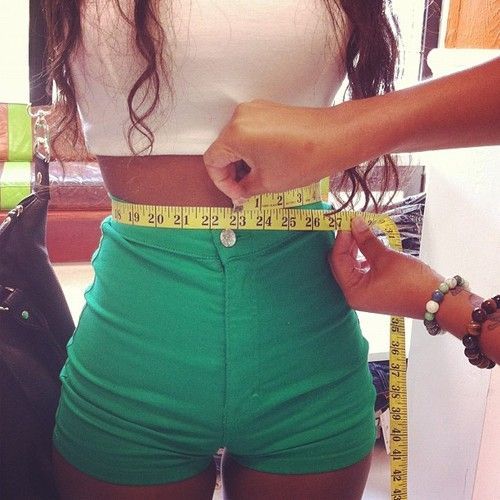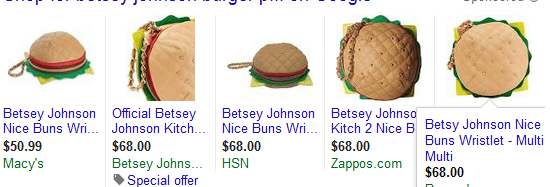Just because your waist is 23'... Doesn't mean you're skinny.

Just because your waist is 23'... Doesn't mean you're skinny.

I don’t know if there are many authors out there who have written what they hate about being an author. Don’t get the wrong idea. I love being an author. I truly do. Yet, there are parts about it that I hate.
- Reviews. Yeah, you’ve got a book published, it’s selling, and that’s probably all that matters to you. At the same time, readers’ opinions are probably more important than anything else. If your book flops as far as ratings/reviews are concerned, readers might not be as inclined to buy the next book, especially if this book is in a trilogy. Luckily for me, When Stars Die has 91 ratings with a 4.31 star rating. That’s pretty darn good.
- Publication. Just because you’ve got one book published doesn’t mean you’ll easily get another one published. Take my book, for example. Since being orphaned due to the closing of my publisher, it hasn’t found a home yet since I started searching in January. Granted, it did land a contract I’m still sitting on, and the full is with another house whose owner said they’ll get to my manuscript this month–and hopefully a contract. Thus, published authors are in the same boat as those not published. The only difference is people are actually reading their sweat-blood-and-tears books and making some money from it, but that’s it, really.
- Publishers Folding. This sucks badly. When AEC folded, I saw it as an opportunity for my novel to start anew. I have to think this way so I don’t succumb to despair. It is true that it’s a fresh start, but what’s also true is that it sucks that AEC folded. AEC didn’t fold due to monetary reasons, but that doesn’t make it any less sucky. After all, the sequel to my novel was almost ready to be made into an ARC that I could send out to readers for ratings/reviews. It had the cover and everything. I was just a few chapters shy of completing final proofreads. But this is the risk authors take when they decide to not get published by a Big 5 house. Even then, those published by the Big 5 are in danger of losing their jobs, too, especially if their agent decides to quit and can’t hand you over to another one. Or their editor decides to quit and the others don’t want your book.
- Not Finding a Publisher. Okay, so this doesn’t have anything to do with me, as I don’t have a literary agent, but I do know a few authors who once had literary agents. Those agents could not find a single publisher to take on their book. In the end, one decided to self-publish the rejected novel, and the other few dropped their agents altogether to start self-publishing their titles–with some success, of course.
- Sales. This is probably the aspect I hate the most. My novel did somewhat okay in regards to sales, but it’s still nail-biting torture when you receive your monthly statements. Some authors, even with good small presses, may not sell any books at all during a single month. This is incredibly disheartening, as we authors want people to read what we’ve written. We didn’t get published so we could finally call ourselves authors. We wanted our books to be published so we could share our stories to those interested in the types of stories we’ve written. So it’s no fun when you’ve had a bad month of sales–and you WILL have at least one bad month, which is subjective depending on previous sales’ records.
- Cover Art. Okay, so both of my novels have gorgeous, gorgeous covers. It was exciting to know what my cover artist could come up with. Even so, it’s a process I both loved and hated. What if I hated the cover? What if the publisher and I couldn’t come to a compromise on the cover? What if readers don’t buy your book because the cover is so obviously crap? What if it doesn’t even have anything to do with your book? Authors with smaller presses tend to have more say, but that doesn’t mean your options aren’t limited. But feel bad for the authors with the big guys. They don’t have a say at all. Some don’t want a say. But there are horrendous book covers out there because the authors didn’t have a say.
- Blurbs. Once your book has been accepted for publication, you still have to write the back cover blurb. This is a process I hate, as I’m not great with them. You think it’d be easy after writing a query letter and synopsis, but the blurb is something completely different. Query letters and synopses entice agents and editors to take on your book. Blurbs entice readers to buy your book; thus, the blurb has to be different because it’s about reeling in readers.
- Being Stranded. When the house folds, you’re stranded again. There aren’t many publishers out there willing to take on a previously published book. Thankfully, there are some presses out there that will. Nonetheless, having that book previously published will not give you a leg up. Having great sales and even reviews doesn’t give you a leg up. If the editor doesn’t like what they’re reading, no amount of sales or great reviews are going to change that editor’s mind.

Can't we get Amber back for like a day or two? I'm so bored right now.
I saw this image and it reminded me of Amber's signature:

Just because your waist is 23'... Doesn't mean you're skinny.

On a tangent; I know 'sweat shop work shops' get a bad rap in the western media but let me be honest here. First of all, children in Bangladesh are usually not employed in garment factories. Its usually young women and men that are employed. And you will not believe how positive it is as a source of income and growth for these underprivileged folk. They are paid muchmore (relative to how much they would be paid as a house servant or something similar...or even just unemployment). They enjoy autonomy and respect. It is a source of empowerment, especially for the women, for reasons that are innumerable to list here. This is true especially in a country where the divide between the rich and poor are so huge. The upper class are running out of people to hire as maids,servants and chauffeurs (often times treating them degradingly) because of this phenomenon. Children of underprivileged couples that work in garment factories, can send their kids to school And not just pull them out, becsuse they need to generste income to survive. Which is awesome. Although its not a perfect system, and with alot to be desired for, it is a start. And potentially a means for better legislature in future as far as working hours and the forming of a union etc - it is a process. Especially after the Savar factory disaster.
I understand that designers and brands make a sizable profit, when they outsource their production to third world countries, but honestly, they are also serving as a vital source /oppurtunity of economical growth in these countries. So, alot of good actually comes off this.
Oh and no, counterfeit products are not the usual mainstream export of these countries. Although, it happens, its on the down low. So many international businesses now place their production orders in third world countries that most garment productions are legit. Counterfeit production are an illegal activity, even there. And businesses will refrain from giving you their contract if they get wind of illegal activity. And as a garment factory owner, you would definitely aim to secure those large international contracts. And just because it's produced at a third world, it doesnt mean shoddier workmanship. A factory will not secure a contract or be paid if a certain quality grade is not achieved per product. Those products that dont make the cut, are destroyed...equalling lost labour hours and resources for the factory.
So yep, this sweatshop BS spouted in the western media, fuelling disdain and contempt among the general public ...instilling a houlier-than-thou-attitude who don't know any better, is misinformed and undeserved.


I was feeling kind of nostalgic, and I think I realised why Amber was so offended that we didn't like her shitty jewellery.


That's not even jewelry; it's more like a free gift from a fast food restaurant.
 As we like to tell outcasts of the SG community, "GO BE FAT SOMEWHERE ELSE!"
As we like to tell outcasts of the SG community, "GO BE FAT SOMEWHERE ELSE!" 

